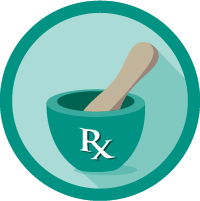We’ve all been there—digging through the medicine cabinet only to find a bottle of pain relievers or allergy medication that expired months (or even years) ago. The big question is: Does the expiration date really matter, or is it just a suggestion?
Before you decide to take that expired medication, let’s dive into what expiration dates mean, how they affect your medicine’s effectiveness, and whether you should really toss those old pills.
What Do Medication Expiration Dates Mean?
The expiration date on a medication is the final day that the manufacturer guarantees the drug’s full potency and safety. This doesn’t necessarily mean the medication becomes harmful after that date, but it does mean its effectiveness may decline.
How Are Expiration Dates Determined?
Manufacturers test their medications to determine how long they remain stable and effective under proper storage conditions. However, they only test for a certain period—often one to five years—so the expiration date reflects that timeframe. Many medications may remain stable beyond their expiration date, but their strength and reliability can no longer be guaranteed.
Do Expired Medications Lose Effectiveness?
Yes, over time, some medications degrade, meaning they may not work as well as intended. This is especially important for medications that require precise dosing to be effective, such as:
Insulin – Used to manage diabetes, insulin can break down and become less effective over time.
Epinephrine (EpiPens) – Critical for severe allergic reactions, expired epinephrine may not work properly in emergencies.
Antibiotics – Some antibiotics lose potency and may not fully treat infections, leading to antibiotic resistance.
Heart Medications (Nitroglycerin, Blood Pressure Meds) – These can degrade and may not provide the needed therapeutic effects.
For less critical medications, like pain relievers or antihistamines, the risk of taking an expired dose is more about reduced effectiveness than danger, but it’s still best to use fresh medication.
Are Expired Medications Dangerous?
In most cases, expired medications aren’t harmful, but there are exceptions:
Tetracycline (an antibiotic) – Some outdated tetracyclines have been found to become toxic over time, potentially damaging the kidneys.
Liquid Medications – Suspensions, eye drops, and injectables can grow bacteria or break down chemically, making them unsafe.
Biologic Medications – Drugs like biologics or vaccines are very sensitive to time and temperature, so expired doses may not work as intended.
Proper Storage Can Make a Difference
How you store your medications affects their shelf life. To keep them effective for as long as possible:
✅ Store them in a cool, dry place (not your bathroom, where humidity can degrade them).
✅ Keep them in their original containers with the lid tightly sealed.
✅ Avoid exposing them to direct sunlight or extreme temperatures.
✅ Do not store medications in your car, as heat and cold can break them down faster.
When Should You Toss Expired Medications?
If you’re unsure whether to keep or toss an expired medication, consider these questions:
Is it a life-saving medication (like an EpiPen or heart medication)? → Replace it.
Is it an essential medication where potency is crucial (like insulin or antibiotics)? → Replace it.
Is it a common over-the-counter drug (like ibuprofen or allergy medicine)? → Likely safe, but may be less effective.
When in doubt, ask your pharmacist! They can tell you whether your expired medication is still okay to use or if it’s time to replace it.
How to Dispose of Expired Medications Safely
Don’t flush medications down the toilet unless specifically directed to do so (as some drugs can contaminate water supplies). Instead:
🔹 Use a Medication Take-Back Program – Many pharmacies offer safe disposal programs.
🔹 Mix with Unappealing Substances – If you must throw them away, mix pills with coffee grounds or cat litter in a sealed bag before tossing them in the trash.
🔹 Remove Personal Information – Cross out labels on prescription bottles to protect your privacy.
Final Verdict: Do Expiration Dates Really Matter?
Yes and no. While some medications remain safe but slightly less effective after their expiration date, others can become dangerous or ineffective, especially those used for critical health conditions.
If you’re ever unsure, your pharmacist is your best resource. They can help you determine whether your medication is still safe or if it’s time for a new prescription.
👉 Need to refill an expired medication? Visit our Pharmacy!

